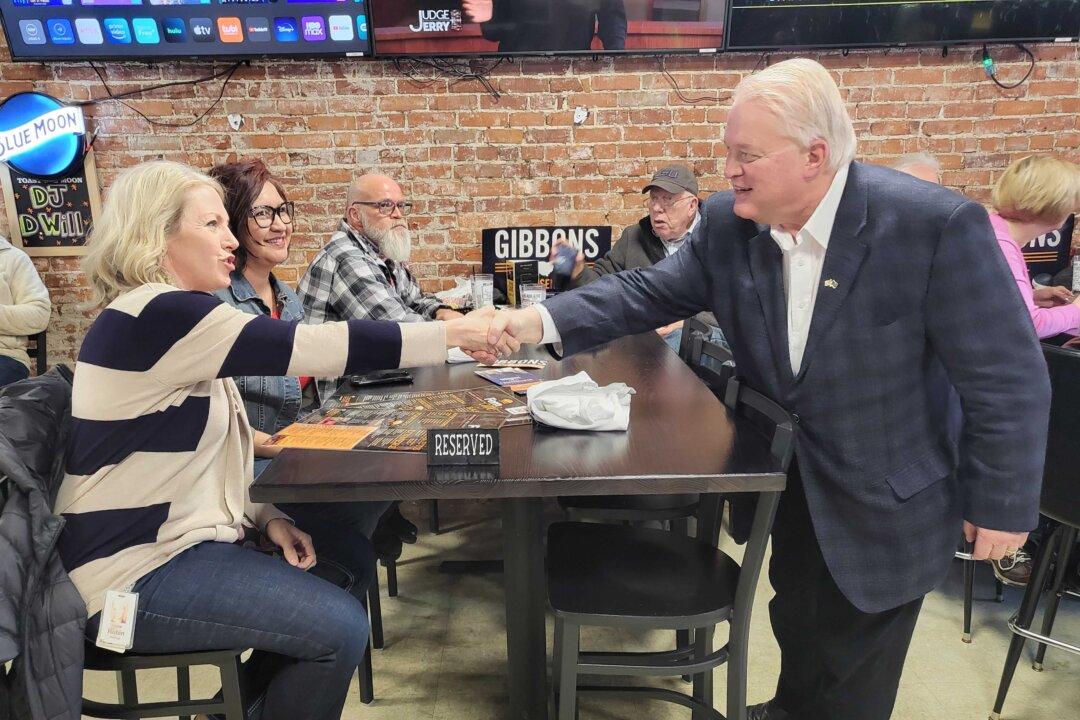Traversing Ohio in a charter-style bus emblazoned with his name and the blue-and-gold colors of his alma mater, St. Ignatius High School, Cleveland investment banker Mike Gibbons is talking to voters in each of Ohio’s 88 counties in his quest to win the GOP U.S. Senate primary.
“I don’t think I could do more because I am on the road every day,” Gibbons said. “I’m going to go to every nook and cranny in this state that will listen to me.”





